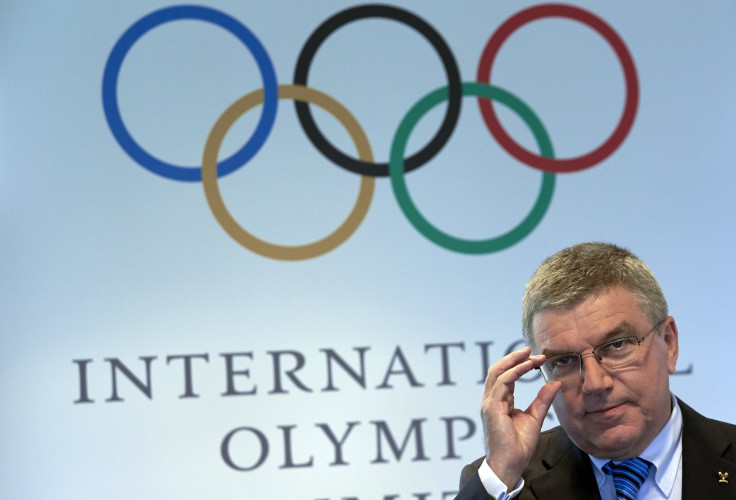Olympics 2024 Human Rights: Host City Contract Criticized By Watchdog Groups

An alliance of watchdog groups jointly rebuked the International Olympic Committee this week over vague language used to outline human rights standards in the 2024 Olympic host city contract. The criticism was made public amid the IOC’s attempts to reassure the international community that past instances of human rights violations by host nations would not be repeated.
Member organizations of the Sports and Rights Alliance, including Amnesty International, Transparency International Germany and the International Trade Union Confederation, highlighted several examples of mistreatment, including China’s crackdown on journalists and human rights advocates at the 2008 Summer Olympics in Beijing, Russia’s passage of an anti-gay law before the 2014 Winter Olympics in Sochi, and instances of forced evictions in Rio de Janeiro ahead of the 2016 Summer Games. These occurrences provided evidence that Olympic events “can and do lead to human rights abuses,” Amnesty International Netherlands director Eduard Nazarski said in a statement.
“The IOC knows this, which makes the omission of explicit references to human rights from the new host city contract even more astonishing,” Nazarski said. “It is essential that the IOC wakes up to the human rights impact of its events, and lives up to the expectations created around Agenda 2020. The Olympic charter states that sport is a human right, but when the staging of Olympic events falls short on protecting human rights, the claim rings increasingly hollow.”
Critics have grown increasingly concerned in recent years as the IOC has awarded hosting rights to autocratic regimes with questionable human rights records, while democratic nations balk at the costs. Russia and China each spent about $40 billion to host the games. When determining the host city for the 2022 Winter Olympics, the IOC was forced to choose between bids from China and Kazakhstan – each of which has poor human rights record – when other cities dropped out of the running.
Earlier this month, the IOC published the host city contract for the 2024 Summer Games, marking the first time the document was released so far in advance of the event. The host city contract and other documents were published under guidelines established by Olympic Agenda 2020, a series of reforms aimed at increased transparency related to the IOC’s selection process and explicit human rights protections.
Host cities must now agree to baseline standards for human rights violations as outlined in the Olympic charter, including the “prohibition of any form of discrimination with regard to a country or a person on grounds of race, colour, sex, sexual orientation, language, religion, political or other opinion, national or social origin, property, birth or other status -- as well as the development of the Olympic Movement,” according to the host city contract.
However, the document provides little in the way of specific restrictions on what a government can and cannot do while hosting the Olympics. Without “explicit references” to human rights standards and mechanisms to guard against corruption and labor rights violations, the contract falls short, watchdog groups argue.
The IOC addressed concerns about its host city contract Thursday.
“We were surprised by these comments since the changes to the host city contract were publicly welcomed by member groups of this alliance at the time,” IOC spokesman Mark Adams said in a statement to the Associated Press, adding the host city contract “explicitly references all three areas highlighted by the Sport and Rights Alliance: LGBT rights, workers’ rights and free reporting in the context of the Olympic Games.”
The IOC identified five cities – Los Angeles; Paris; Rome; Budapest, Hungary; and Hamburg, Germany – as potential sites for the 2024 Summer Olympics. A final decision won’t be made until September 2017.
© Copyright IBTimes 2025. All rights reserved.






















